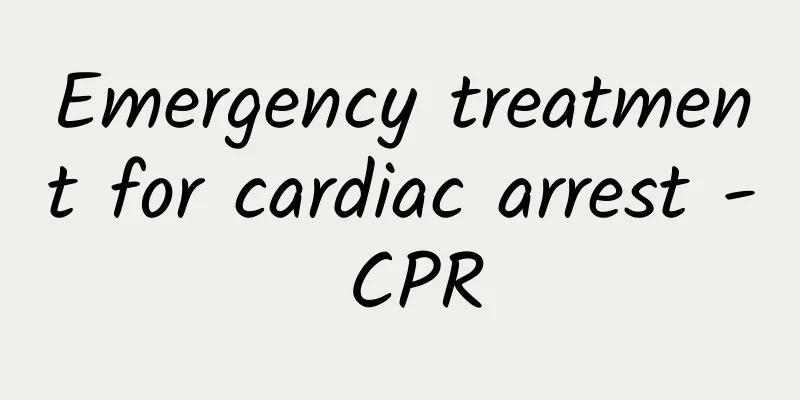I took the emergency contraceptive pill and my abdomen became bloated

|
Taking emergency contraceptive pills will bring many side effects, mainly because contraceptive pills are a progestin drug, which has a great effect on inhibiting the production of eggs. Therefore, after taking emergency contraceptive pills, you may experience abdominal distension and bleeding. These are all normal drug reactions. We should understand the possible side effects of contraceptive pills and then choose countermeasures based on its side effects. Many women experience abdominal distension, lower back pain, etc. after taking birth control pills. This is normal because of the hormone levels. side effect Common side effects 1) Nausea: After taking the drug, nausea symptoms generally last no more than 24 hours. 2) Vomiting: Taking the medicine with food or before going to bed can reduce the incidence of nausea and vomiting. If you vomit within 1 hour after taking the emergency contraceptive pill, you should take another dose as soon as possible. [Enteric-coated contraceptives] Because they dissolve in the intestines, there is no need to take them again. 3) Irregular uterine bleeding: Some women will experience spotting after taking the medication, which generally does not require treatment, but the user must be made aware of this situation and provide consultation and education before and after taking the medication. 4) Menstrual changes: Most women have their periods on time, but some women have their periods early or late. If your period is delayed by a week, you should do a urine pregnancy test to determine whether emergency contraception has failed. 5) Changes in ovulation period: Taking emergency contraceptive pills will affect the menstrual cycle. Women should try to use highly effective contraceptive methods after this, and avoid taking risks with emergency contraceptive pills or unscientific contraceptive methods such as safe period and ejaculation outside the body, which can lead to infertility in severe cases. 6) Others: breast tenderness, headache, dizziness, fatigue, etc. These symptoms are generally mild and last no more than 24 hours. Severe breast pain and headache can be treated with aspirin or other painkillers. Precautions for taking medicine ⑴ Emergency contraceptive pills can only have a post-contraceptive effect on the previous sexual intercourse. After taking the pills, you cannot have unprotected sexual intercourse again. ⑵ A small amount of vaginal bleeding after taking the medicine is not a sign of successful contraception. If there is no menstrual-like bleeding, you should go to the hospital for examination as soon as possible. ⑶ If vomiting occurs within 1 hour after taking the medicine, you should take another dose as soon as possible. ⑷ Emergency contraceptive pills can only be used occasionally and cannot replace conventional contraceptive methods. ⑸ Pregnant women are prohibited from using emergency contraceptive pills because they have no abortion effect on an established pregnancy. ⑹ The earlier you take the medicine after unprotected sex, the better the effect of preventing unwanted pregnancy. Contraceptive pills and menstruation Emergency contraceptive pills can cause menstrual irregularities in women. If taken in the first half of the menstrual cycle, the side effects of emergency contraceptive pills may interfere with women's menstruation and cause vaginal bleeding. If taken in the second half of the menstrual cycle, the interference with women's menstruation will be smaller. If the amount of bleeding is similar to normal menstrual flow, it can be regarded as a menstrual period. Early menstruation: Bleeding after taking emergency contraceptive pills is clinically called withdrawal bleeding. In fact, this kind of bleeding is generally not considered as menstruation. If taken in the first half of the menstrual cycle, it may interfere with women's menstruation and cause vaginal bleeding; if taken in the second half of the menstrual cycle, it will interfere less with women's menstruation. If the amount of bleeding is similar to normal menstrual flow, it can be treated as a menstrual period. Conventional contraceptive methods should be adopted immediately after the bleeding stops. If the amount of bleeding is small, no treatment is needed, but you still need to pay attention to contraception until the next menstruation. |
<<: First day of pregnancy, ejaculation outside the vagina
>>: Causes of early pelvic insemination
Recommend
What is the reason why frozen hairtail turns yellow? Can hairtail roe be eaten?
Hairtail is also called skirt hairtail, fat hairt...
Self-massage breast technique
Nowadays, many women choose to have breast augmen...
Why is pregnancy stable at 9 weeks?
After going through the first three months of anx...
Do I need an IV drip after a normal birth?
Natural birth is different from caesarean section...
What kind of porridge can help women recover faster after miscarriage?
For women who have miscarriages, there are mainly...
How big is the gestational sac when it starts to have echoes
The gestational sac changes as the pregnancy prog...
What causes uterine pain? So this is the truth!
Many women experience pain during menstruation, w...
How to take a photo of the Douyin washing machine Douyin washing machine photo taking software tutorial
Recently, when I was browsing Douyin, what softwa...
The vagina is all black
Many female friends are more concerned about thei...
How many days does contact bleeding usually last?
How many days does contact bleeding usually last?...
How to plant the newly bought jasmine and what should be paid attention to when pruning jasmine
Many flower lovers like to grow jasmine at home b...
Pregnancy: progesterone and villus stimuli
Women will not feel that they are pregnant in a s...
Detailed explanation of why breast pain feels like being pricked by needles?
If you feel tingling in your breasts like a needl...
The hormone that causes the endometrium to grow is
The growth of the uterine wall actually changes w...
Large amounts of blood clots during menstruation
Large amounts of blood clots during menstruation ...









